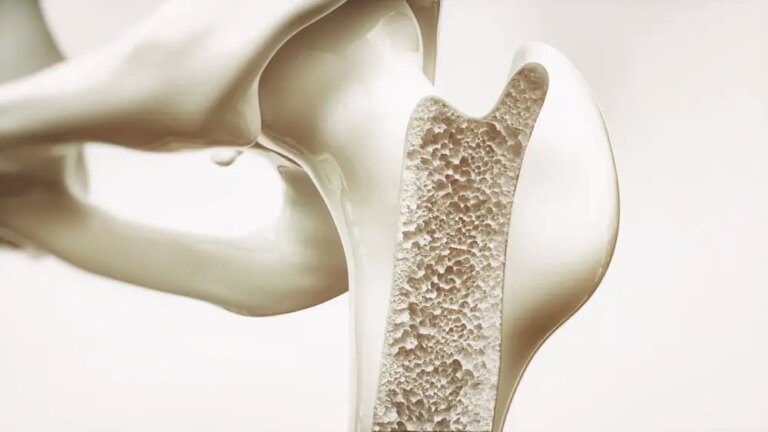Did you know that your messy home might be a testament to your intellectual prowess? Contrary to popular belief, a cluttered living space is not always a negative reflection but can be a sign of intelligence and creativity.
In fact, scientific research has found a compelling link between highly intelligent people and their messy houses. Prepare to gain a deeper understanding of the positive traits exhibited by intelligent people and the secrets hidden within their clutter.
The Surprising Link: Clutter and Intelligence
A fascinating study conducted by the University of Minnesota Carlson School of Management, led by psychological scientist Kathleen Vohs, has uncovered an interesting connection between messy environments and intelligence. The research suggests that people who live in untidy spaces tend to be more open-minded and intelligent.
It turns out that disorderly surroundings can actually inspire fresh ideas and unconventional thinking, allowing these individuals to break free from traditional ways of doing things. They have a knack for thinking outside the box and coming up with creative solutions. This study challenges our assumptions about tidiness and its relationship to intelligence, showing us that a little clutter might actually be a sign of a sharp mind at work.
Shattering the Status Quo: A Disorderly Space Sparks Innovation
Researcher Kathleen Vohs challenges the prevailing emphasis on minimalism and decluttering by proposing a refreshing alternative. In the study, Vohs argues that disorderly environments inspire individuals to break free from tradition, leading to fresh insights and innovative thinking.
In an experiment involving 188 participants, Vohs found that subjects residing in cluttered environments were more likely to experiment with novel concepts than their orderly counterparts, sparking a connection between empathy and creativity. These findings celebrate the validation of clutter’s potential advantages and urge us to reconsider our perspective on messy spaces, especially when stressed at work.
Empowering the Messy: The Upside of Untidiness
In a society obsessed with cleanliness and organization, Vohs believes that embracing messiness can be beneficial. She points out that while there is a multibillion-dollar industry dedicated to decluttering, there are also times when being messy can foster creativity and originality.
It’s a triumphant moment for those who embrace their clutter, as it challenges conventional wisdom and sheds light on the positive aspects of a messy living space.
Uncovering the Genius: Insights From a Cluttered Workspace
Albert Einstein famously commented on the connection between clutter and creativity, stating, “If a cluttered desk is a sign of a cluttered mind, of what, then, is an empty desk a sign?”
According to the study, a cluttered workspace provides the freedom to experiment and explore different ideas, leading to new discoveries and innovative solutions. Embracing the hidden potential of messiness allows for self-expression and promotes personal growth.

Traits of Highly Intelligent Individuals
While messiness is one characteristic, highly intelligent people often exhibit several common traits that set them apart. These traits include:
- Curiosity
- Adaptability
- Open-mindedness
- Advanced problem-solving abilities
- High degree of creativity and originality
In addition, highly intelligent individuals often display rapid learning ability, a high degree of self-awareness, strong memory recall, an aptitude for abstract thinking, and a natural tendency towards introspection.
Multiple Types of Intelligence
Howard Gardner’s theory of multiple intelligences recognizes that intelligence can take various forms. Beyond the traditional measures of intelligence, such as linguistic and logical-mathematical abilities, there are additional forms, such as spatial intelligence, bodily-kinesthetic intelligence, musical intelligence, interpersonal intelligence, intrapersonal intelligence, and naturalist intelligence. This expanded understanding of intelligence underscores the diverse ways highly intelligent individuals express their brilliance.
Moreover, researchers have proposed additional forms of intelligence, such as existential intelligence and moral intelligence, which recognize our ability to ponder profound questions about existence and navigate complex ethical dilemmas. The multifaceted nature of intelligence expands our understanding and appreciation of the brilliance found in highly intelligent individuals.
The Challenges of Intelligence in Life
Intelligence can have a profound impact on various aspects of life. Highly intelligent individuals often excel academically and professionally. However, they may also face unique challenges, including increased stress, feelings of depression or isolation, and struggles with perfectionism.
Moreover, intelligence is not limited to academic or professional success. It influences various aspects of life, including interpersonal relationships, emotional well-being, lifestyle choices, and hobbies. Highly intelligent individuals may be more prone to overthinking and existential angst, often feeling out of step with societal norms.
Recognizing the broader impact of intelligence helps us acknowledge the unique challenges and experiences faced by individuals with high intellectual capabilities. It also allows us to appreciate the complexity of the relationship between intelligence and the state of one’s living environment.

My Personal RX: Preventive Measures for a Harmonious Living Space
While messy houses may be associated with intelligence and creativity, it’s important to strike a balance between chaos and functionality. Here are some preventative measures and ways to identify potential problems or symptoms related to clutter:
- Utilize storage solutions such as baskets, shelves, and containers to keep items organized and easily accessible. Establish designated storage areas for frequently used items.
- Implement a “one in, one out” policy to prevent the accumulation of unnecessary belongings.
- Recognize signs of excessive clutter, such as difficulty finding essential items or feeling overwhelmed in your own space. Regularly assess and discard items that no longer serve a purpose or bring joy.
- Incorporate daily cleaning habits to maintain cleanliness and order in your home.
- Be mindful of your mental and emotional well-being, as clutter can contribute to increased stress levels.
- Seek support from friends, family, or professional organizers if you need assistance in decluttering and organizing your space.
- Practice meditation to let go of any feelings of anxiety, tension, and stress. Get the Calm the Chaos guide to get access to the 7-day guided meditation.
- Optimize your brain health through Magnesium Essentials to promote relaxation, improve sleep quality, and support healthy stress management.
A messy living space should not be seen as a sign of negligence but rather as a reflection of the chaotic beauty of creative minds. Highly intelligent individuals often possess traits that contribute to a cluttered environment, including curiosity, adaptability, and a high degree of creativity.
However, it is crucial to acknowledge that clutter can sometimes have negative effects on one’s mental health and overall well-being. It is important to strike a balance, recognizing when excessive clutter becomes detrimental and taking steps to maintain a clean and organized living space that promotes a healthy mind and well-being.
References:
- Vohs, K. D., Redden, J. P., & Rahinel, R. (2013). Physical Order Produces Healthy Choices, Generosity, and Conventionality, Whereas Disorder Produces Creativity. Psychological Science, 24(9), 1860–1867. https://doi.org/10.1177/0956797613480186
- Howard Gardner’s Theory of Multiple Intelligences | Center for Innovative Teaching and Learning | Northern Illinois University. (n.d.). Northern Illinois University. https://www.niu.edu/citl/resources/guides/instructional-guide/gardners-theory-of-multiple-intelligences.shtml
- Healthline. (n.d.). 15 Signs of High Intelligence. Retrieved from https://www.healthline.com/health/signs-of-intelligence





















